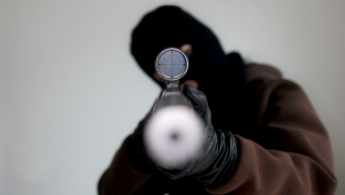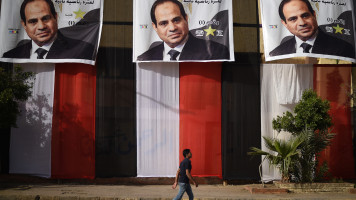No one safe in Syria's sniper war
Shatha al-Kubaisy was shot in the head while on a trip to the bakery in Zabadani, Damascus, in 2011. The 60-year-old had only been in Syria for a few years, having fled the war in Iraq. She was the first civilian in the suburb to be shot dead by a sniper, but she was by no means the last.
The Syrian regime used snipers to suppress protesters when demonstrations broke out more than three years ago. But it was not long before they were killing anyone they saw in opposition-held areas.
The most ruthless achieved notoriety: There was the Hajz garage sniper in Aleppo, the Gardenia tower sniper in Homs, and the medical tower sniper in Duma.
| It was not long before the snipers were killing anyone they saw in opposition-held areas. |
A report released by the Syrian Network for Human Rights (SNHR) in October 2014 entitled "hunting humans", said that 5,307 civilians had been killed by snipers belonging to the Syrian regime and its allied militias during the conflict.
In Deir Ezzor, a sniper based atop a police station shot at locals as they crossed a nearby bridge.
"We would only ever cross at night. We covered our car in sand and turned off the lights. We would drive as fast as possible, knowing we could die," said Aboud Saleh, an activist from the town.
"Once a family tried to cross. A sniper killed the father, then the mother, then the three children. The Free Syrian Army later took control of the area, and took their revenge [on the shooter]."
Shatha was shot in the head and spent more than an hour lying on the street contorting in pain. The sniper shot at anyone who tried to rescue her. A group of young men tried to pull her to safety using a long iron bar. They urged her to recite the shahada, the Islamic creed declaring belief in the oneness of God and the acceptance of Muhammad as God's prophet.
"Shatha's death has had the biggest impact on people in the city," Mariam, a media activist from Zabadani, told al-Araby al-Jadeed.
"When the young men carried her home, she took her last breath in front of her two stunned daughters. After this, the girls returned to Iraq.
"Their mother couldn't have imagined that she would die in a Syrian city, not like this. If Shatha had known she would be the first woman to be killed by the regime's forces in Zabadani, and the first woman martyr in the eyes of the local people, she would never have left Iraq in 2005."
This article is an edited translation from our Arabic edition.



